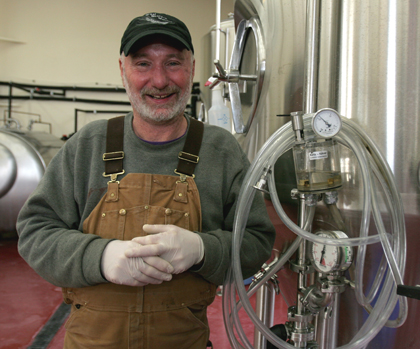All About Beer: You have been in on start-up brewing enterprises in many countries. How receptive were they to brewpubs and craft beer?
Will Kemper: The reception has generally been positive, for example, in Turkey—specifically Istanbul, because Turkey’s a big country, so you’re really talking Istanbul.
AAB: It’s secular, but Muslim.
It’s a secular country like the U.S. is a secular country. The cultural aspects have a lot to do with how things are done. For example, I’d worked in Istanbul for three or four years on a couple of breweries. People think as far as Islamic countries go, it’s kinda puzzling, the acceptance of brewing there.
After a couple of years, I was in a vehicle with the project manager, and we were discussing work permits. On work permits, you have to put down what religion you are, so I had put down Buddhist. I tell them this story in the car, and the manager said, “No, Will, actually, you’re not Buddhist. What happened was, when you gave us the application, we put you down as Muslim. It just makes things easier.”
I understand that. I’ve worked with all sorts of engineers and independent contractors there, and invariably they put us all down as Muslim.
So, you look at the situation in Turkey, where 95 percent of the people are Muslim [and shouldn’t drink alcohol]. When you see that type of project, there might be concerns, but I was included in that 95 percent! So dealing with the people there, it’s secular like the U.S. is secular, where most of us are just assumed to be Judeo-Christian. There’s more similarity, as far as people relate to each other, than difference.
How did you get your start?
I studied chemical engineering in Boulder, at CU; I actually started homebrewing there.
Did you have beer and brewing in mind when you took up chemical engineering?
No. After I graduated, my wife, Mari, made a comment one day: “Will, if you like beer so much, why don’t you learn to make it?” One thing led to another. Making beer is classical chemical engineering. There’s a lot of chemistry and biology to it, but manufacturing is engineering. So, when you talk about a background to get into brewing, I can’t think of a better one.
Where was your first proper brewing job?
With Thomas Kemper. We moved out to the Seattle area in the late ’70s, because we wanted to live on the coast. The big brewery in Seattle was Rainier. I made an appointment to see the brewmaster, to talk about the profession of brewing. I said, “I have a degree in chemical engineering, and I’ve been homebrewing for so long. I’d really like to make my way into the brewing industry as a professional if I could.” He said, “Well, I appreciate that, but to become a brewer these days, you have to be born into it.” What that meant was that it went from father to son. Without that linkage, it was virtually impossible. The fact was, breweries were consolidating, and jobs were actually declining. So unless you were born into it, good luck.
We decided to think about it, knowing that some small, new breweries had started up already. There was Bill Newman’s on the East Coast [Newman Brewing Co., Albany, NY] and I want to say Cartwright in Oregon, and a couple of others. The point is, it wasn’t a compete vacuum. I decided, let’s try to make our own brewery. My discussion with the brewer at Rainier taught me, if you want to do it, you’ve got to do it on your own.
I hadn’t realized that older breweries would have been closed to newcomers.
Here’s another story. I’ve been with the MBAA [Master Brewers Association of the Americas] for a long, long time. I was sitting in one of our meetings for the Philly region. At that time, I was the only craft brewer going to these regional conferences. I’m sitting with the brewer from Stroh’s—only about a dozen or so people would come to these meetings at the time—and he said. “Look around you. There are 12 master brewers around here and only two of us are practicing our craft.”
Craft brewers kept the brewing industry alive and thriving. The big guys helped us too, of course, but without craft brewers, there’s no way that organizations like MBAA—and their knowledge—would continue to exist.











